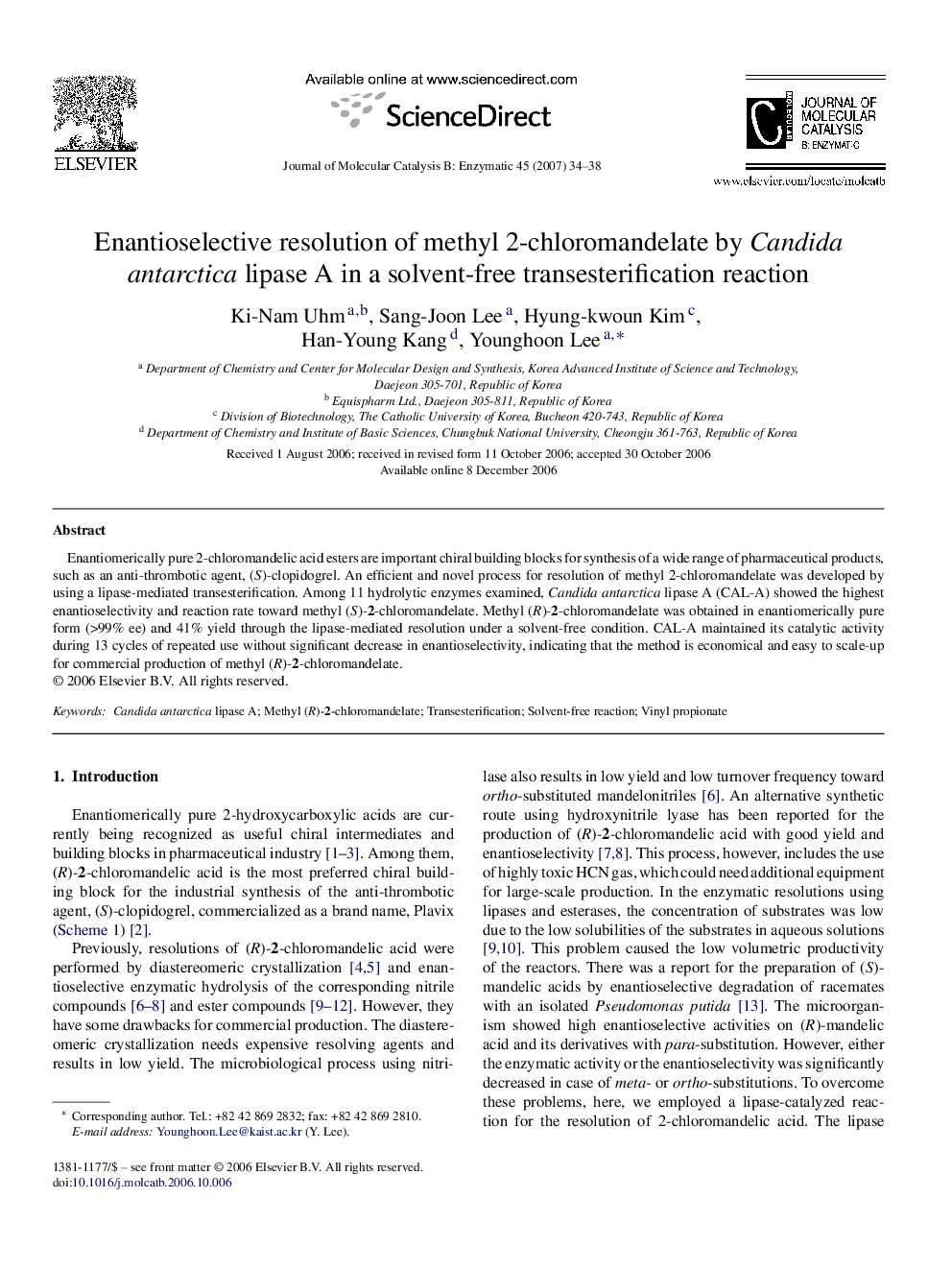| Article ID | Journal | Published Year | Pages | File Type |
|---|---|---|---|---|
| 71087 | Journal of Molecular Catalysis B: Enzymatic | 2007 | 5 Pages |
Enantiomerically pure 2-chloromandelic acid esters are important chiral building blocks for synthesis of a wide range of pharmaceutical products, such as an anti-thrombotic agent, (S)-clopidogrel. An efficient and novel process for resolution of methyl 2-chloromandelate was developed by using a lipase-mediated transesterification. Among 11 hydrolytic enzymes examined, Candida antarctica lipase A (CAL-A) showed the highest enantioselectivity and reaction rate toward methyl (S)-2-chloromandelate. Methyl (R)-2-chloromandelate was obtained in enantiomerically pure form (>99% ee) and 41% yield through the lipase-mediated resolution under a solvent-free condition. CAL-A maintained its catalytic activity during 13 cycles of repeated use without significant decrease in enantioselectivity, indicating that the method is economical and easy to scale-up for commercial production of methyl (R)-2-chloromandelate.
